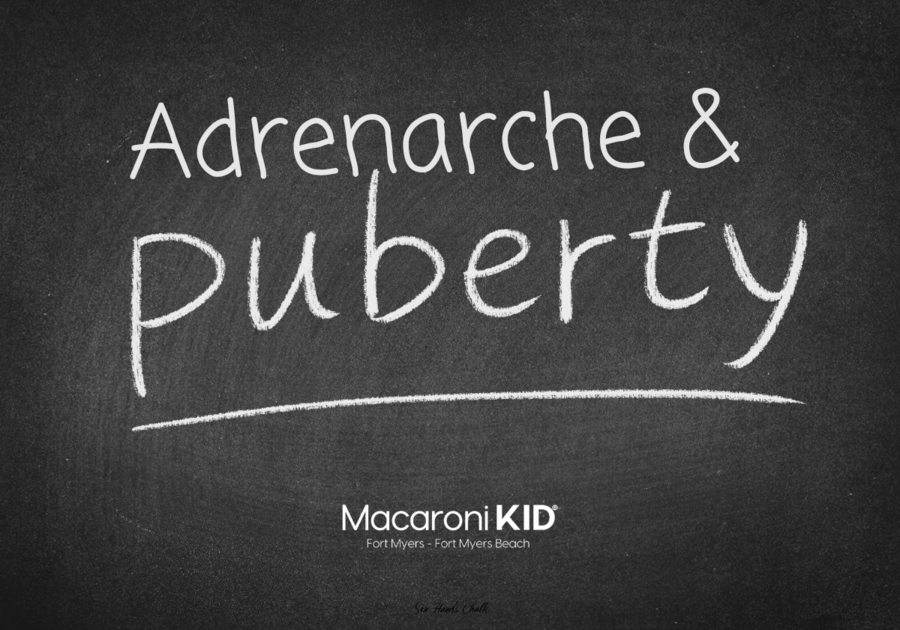You should always consult with your family physician for any questions or concerns related to your family's health. I am not a doctor, nor can I give medical advice.
Adrenarche
Adrenarche is an early stage of puberty - an emotional and psychological stage of development prior to the physical changes. Adrenarche begins on average between ages 6 and 8 in girls and between 7 and 11 in boys, and typically precedes puberty by about 2 years. I began to research adrenarche when I started noticing heightened emotions in my 8-year-old daughter, sometimes getting upset over nothing, sometimes crying easily and for "no reason," and that's when I found several articles about adrenarche and all of the hormonal and emotional changes it puts our children through. Scientists have found this uptick in emotions to be adrenarche symptoms, and I want to know more!
What are signs of adrenarche?
Since these changes are mostly emotional and psychological, it can be hard to see via physical symptoms. You may notice your kiddo is upset or sad for "no reason," it could be uncharacteristic of them, and you can tell they are struggling to process their emotions or mood swings.
What is premature adrenarche?
Premature adrenarche is when bodily [puberty] changes begin early, before age 8 for girls and age 9 for boys. It is more common in girls than in boys. One study found that second and third graders had an increase in adrenal androgens (puberty hormones). This is natural, though not all kids show symptoms of behavioral or mood changes.
What causes premature adrenarche?
The exact cause of premature adrenarche is unknown, but it is thought to be caused by a combination of genetic and environmental factors. Some of the "environmental factors" that have been linked to premature adrenarche include obesity and stress. Stress can trigger the release of cortisol from the adrenal glands, which can lead to premature adrenarche.
How can I help my child through adrenarche?
Keep open communication, keep calm, and chat with your kids about their feelings. Ask them how they feel, why they feel that way, and how we can help them feel better. One thing I do is ask my kids to "drink some smoothies." In this role-play scenario, we'll each grab an air straw and take a deep breath (sip of smoothie), followed by an "ahhhhh" exhale (because the smoothie was so delicious). We'll usually do this twice, finishing by taking the last "sip" of of our most favorite smoothie - this is the biggest breath and exhale, and we're usually very calm and way more settled than before.
Puberty
Girls typically begin puberty between ages 8 and 13 - earlier than their male counterparts. You may start to notice physical changes in girls' bodies around age 12, such as:
- Breast "buds" growing or expanding and hips/thighs/buttocks building up fat
- Pubic and armpit hair forming and growing
- Acne popping up
- A height growth spurt - usually reaching adult height 1-2 years after first period
- First period occurring between ages 12 and 14, but can happen earlier or later
- Most girls get their first period within 2-3 years of breast bud development
Boys typically begin puberty between ages 9 and 14. You may start to notice physical changes in boys' bodies around age 13, such as:
- Penis getting longer and testicles getting bigger; muscles on body growing
- Facial hair starting to appear
- Acne popping up
- A height growth spurt - usually reaching adult height around age 18
- Voice changes - higher and lower pitches
The P's of Puberty
Period - encourage open communication with your children about this early on, and prepare a kit in case your girl's period starts while outside of the home
Pimples - explore acne care options and encourage good hygiene habits
Perspiration - explore deodorant or antiperspirant options and encourage frequent showers and good hygiene habits



